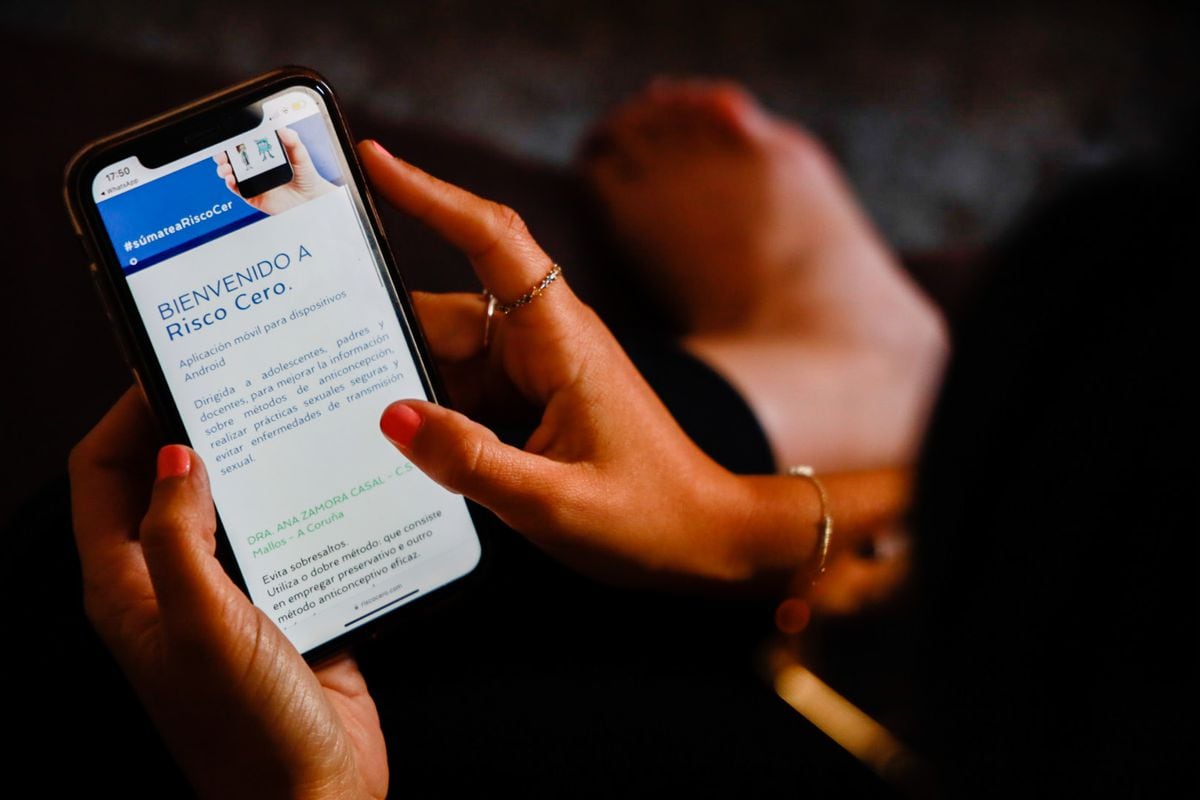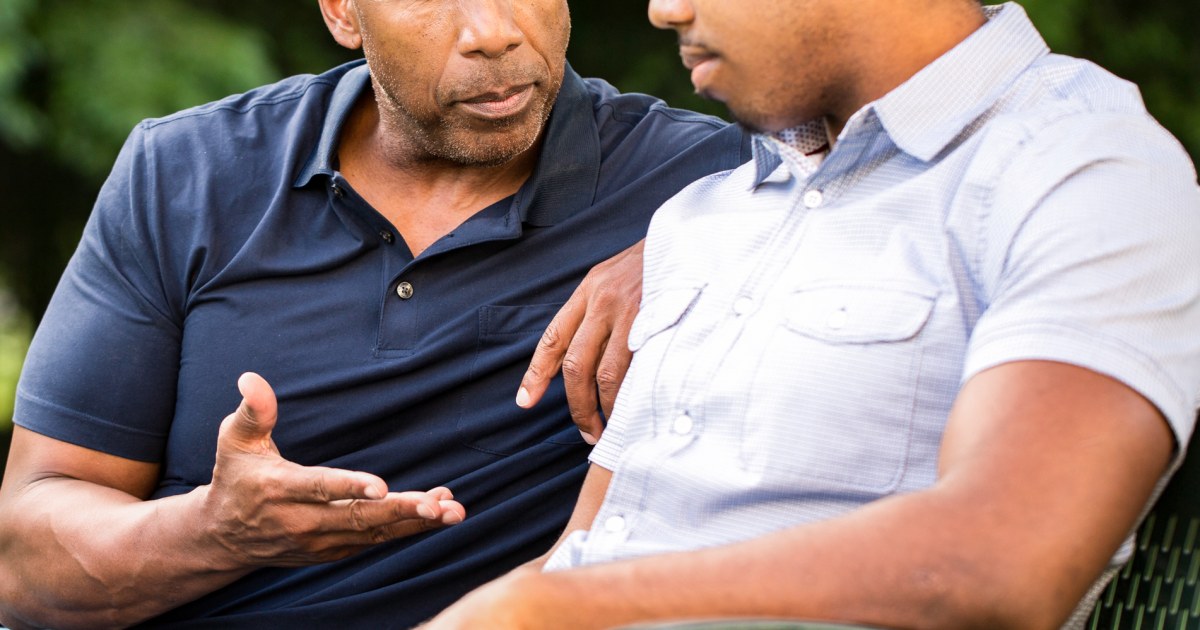In matters of sex, the Internet has simultaneously multiplied information, confusion and doubts among the most technological generation of adolescents in history.
Among the kids, the classic errors are rampant – "with reverse gear there is no risk of pregnancy or sexually transmitted diseases", for example -, but there are also more than ever debates between women and men about consent and sexual practices. abusive that porn teaches them through the screen at younger and younger ages.
Ana Dapena, a resident doctor in Family and Community Medicine at the public hospital in A Coruña, who has given talks on safe sex in secondary schools in the province, is witness to all of this.
Students are not shy about asking, discussing and even recounting experiences:
Dapena is one of the participants in the Risco Cero (Zero Risk) program promoted since 2018 by the Official College of Physicians of A Coruña and which includes a mobile application of the same name where adolescents can find reliable answers to their questions about contraception and diseases sexually transmitted.
It was invented by two primary care doctors, Elvira Someso and Ana Zamora, in collaboration with the professor at the Escola de Imaxe e Son de A Coruña, Ángel Cordero.
They were concerned about "the repeated questions and confusion" that they detected among the girls who requested the morning after pill.
They found that some of them were convinced that when they had their period they were totally safe from pregnancy – “it is less likely, but it can happen”,
The talks, in which 1,800 Secondary and Vocational Training students between the ages of 15 and 20 have participated since 2018, are given, without teachers present, by medical students and medical residents, young people who a few years ago sat in those high school classrooms with the same doubts about sex.
Before the pandemic they were interrupted and will resume the next course, for which, their promoters assure, there are already centers on the waiting list.
Andrea Sánchez, a sixth-year Medicine student, confesses that she is surprised by the climate of "trust and dialogue" that she has witnessed in the classrooms, with kids asking "high-level and deep" questions: "The sex education that we had was a talk in a giant auditorium with all our colleagues or nothing.
It was a hostile environment”, illustrates this twenty-year-old.
“We see the kids very receptive to information,
Trainers report that discussions about pornography and consent among male and female students are intense.
They usually admit an "active" role in relationships or practices that they question but that some assume "with resignation", explains Dapena.
"Now you learn sex through porn and it's a problem," says Dr. Someso.
"It's easy to get to and very visual, with the aggravation that it's seen at an immature age."
Studies document that porn content is accessed earlier on the Internet: from eight years old.
Javier de Toro, vice president of the Official College of Physicians of A Coruña and one of the promoters of the Risco Cero program, agrees in warning against the harmful effects of pornography that has spread over the Internet and believes that the fictitious and abusive sex that it shows is one of the causes of sexual violence and gang aggression.
The resident doctor of Family and Community Medicine Ana Dapena considers that “sexual education at a level of respect” is very necessary: “Sexual violence is a growing problem.
There are normalized behaviors in young couples due to the violence seen in porn.”
According to a 2020 survey by the Spanish Contraception Society, the average age at which young Spanish women have their first sexual relationship is 15 years old.
The registered data of unwanted pregnancies and sexually transmitted diseases require taking measures, defends Dr. De Toro: “The incidence of syphilis is increasing and that of HIV is increasing only in Spain.
The percentage of abortions in those under 19 years of age is equal to that of those under 39. We can look the other way or promote actions to fix it.”
The medical association of A Coruña assures that health professionals have detected an erroneous use of the morning-after pill as a contraceptive among young people and a decrease in the use of condoms.
The entity attributes the increase in sexually transmitted infections such as gonorrhea, syphilis, chlamydia and HIV to this latest trend.
“Doubts and myths from the past persist and [adolescents] confuse pregnancy with safety.
There are practices such as oral or anal sex that do not cause pregnancy, but sexually transmitted diseases do.
The only thing that prevents both things is the condom, so condom yes or yes.
Ideally, it should also be accompanied by a second method of contraception, "explains Dapena.
So that kids can overcome obstacles such as the price of condoms,
reliable answers
The Risco Cero mobile application of the Official College of Physicians of A Coruña solves doubts about contraception or symptoms, protection and treatment of seven sexually transmitted diseases (chlamydia, gonorrhea, genital herpes, syphilis, genital warts, AIDS and trichomoniasis).
Here are some of their questions and answers:
Ask.
If I take the morning after pill and have sex again, am I protected?
Response.
Do not.
Q.
What do I do if I use two or more per month?
A.
You need another safer method that protects you every day.
Q.
What if I vomit while taking it?
A.
If you vomit before two hours, take the pill again.
If it is after two hours, you should not take it later.
Q.
How are sexually transmitted diseases spread?
A.
By having unprotected sex.
Q.
My partner does not have any symptoms.
I am safe?
R.
These ailments are contagious even if there are no symptoms.
Use a condom, use a mouth barrier.
Q.
I already have a sexually transmitted disease.
Can I have two at the same time?
A.
Yes, and if you don't treat one, you have a higher risk of getting another.
Q.
What happens if I don't take any treatment for, for example, syphilis?
R.
That you can infect your sexual partners and, if you are a woman and pregnant, your son or daughter.
The disease will progress over the years and can become very serious.
Exclusive content for subscribers
read without limits
subscribe
I'm already a subscriber















